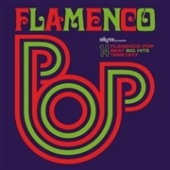
Various Artists
Flamenco Pop - 14 Flamenco Pop Beat Big Hits 1968-1977
Label: Adarce
Genre: Freestyle / Nu Jazz / Funk / Afro
Availability
- LP €26.99 In Stock
Pointing out this idea today is possibly a crime of female objectification. On prosecution we'll have Manolo Escobar, Juanito Valderrama, El Principe Gitano, El Noy, Moncho, Richart and Los Nevada. If someone had told me these names a few years ago I would have bet they all came from a typical sixties Spanish film by Mariano Ozores, but do this: drop the needle, close your eyes, hear their stories - no matter if you know the artist or not - and try to fit it in its time (the 1970s, Franco's Spain, grey colors, austerity), but above all do listen to the music. We should refund your money if at any point you think "wtf?." And if your imagination can't go that far, just look for the clips on the films mentioned below."
